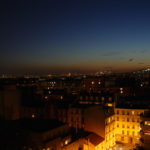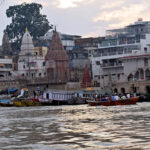
(TAN): Most Icelanders see tourism as an economically important industry and believe that tourists enrich society in various ways. The Icelandic Tourist Board recently published a report on the residents’ attitudes of tourism in Iceland. The aim of the survey was to assess the attitudes of Icelanders to tourism and tourists at a specific time, both nationally and by individual regions.
Additionally, the tourism board said in a statement, evidence was sought as to whether Icelanders feel pressure from tourism in their community.
[ALSO READ: Germany launches online campaign with offers on sustainable tourism products]
The report contains analyzes of the data collected in the autumn of 2019 as well as comparisons with previous national surveys from 2017 and 2014. The Icelandic Tourism Research Centre conducted the survey on behalf of the Icelandic Tourist Board in the autumn of 2019.
The findings indicate that Icelanders see tourism as an economically important industry and that tourists enrich society in various ways. The perceived economic impact of tourism reflected in Icelanders’ ideas that tourism strengthens the economy and creates opportunities for individuals, companies, and municipalities to generate income.
Social and cultural influences also played a major role in Icelanders’ attitudes. A positive relationship was found between the Icelanders’ assessment of their own quality of life and other aspects of the survey. The more positive the impact that Icelanders felt from tourism, the more likely they were to consider their quality of life good.
[ALSO READ: Research project to better understand and respond to Covid-19]
Only 8% of Icelanders claimed they experienced disturbances in their daily lives due to tourists, but no indication that disturbances by tourists had increased between surveys was found. The results showed, however, that Icelanders who experienced too many tourists, experienced disturbance due to tourists and believed that the local area could not receive more tourists compared to the current situation were more negative in attitudes than other Icelanders.




